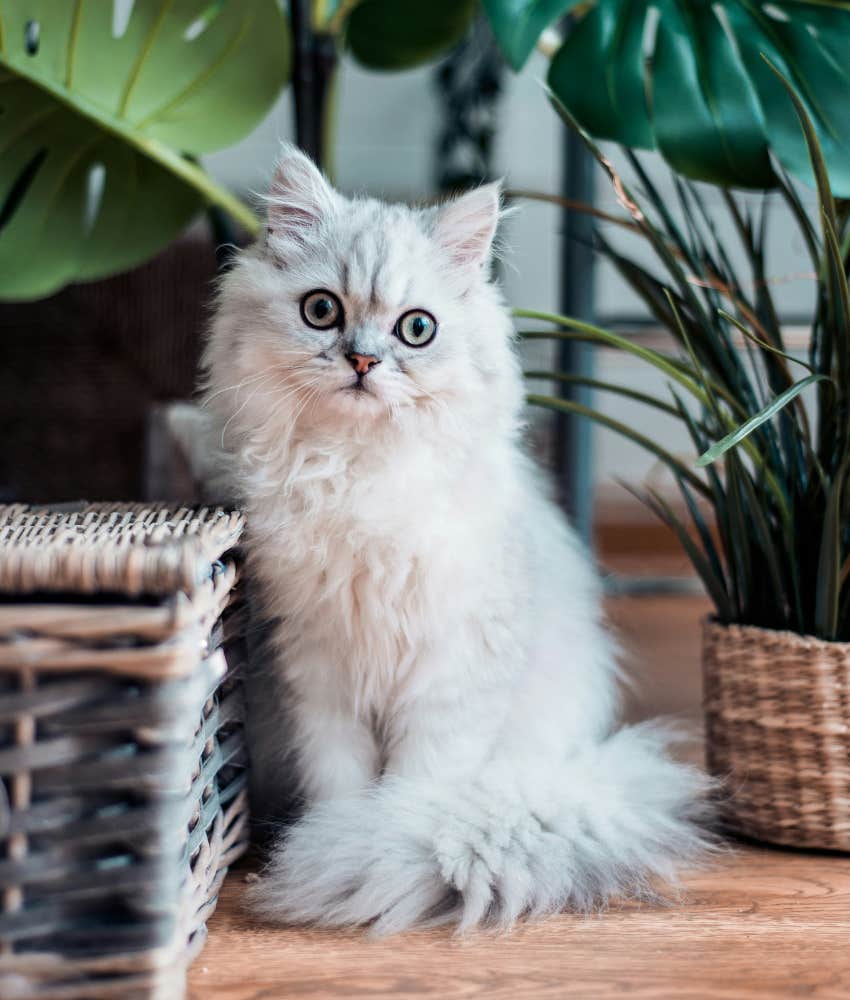The 3 Interesting Ways Your Pets Will Likely React To The Total Solar Eclipse On April 8
Keep an eye on your furry friends during the astronomical event.
 Yan Laurichesse / Unsplash
Yan Laurichesse / Unsplash On April 8, 2024, people along a narrow strip across 13 states in the U.S. will experience a major astronomical event: a total solar eclipse.
The Great North American Eclipse will begin over the South Pacific Ocean, moving through Mexico into Texas. It will travel upwards from Oklahoma to Maine, exiting through Canada.
A total eclipse of the Sun by the Moon only occurs in the same place once in a 375-year time span. People in the path of totality will witness the Moon’s shadow covering the Sun completely. The sky will darken as though it were dusk or dawn and air temperatures will drop.
While we have a scientific understanding of what happens during an eclipse, our furry friends do not. As the Moon crosses over the Sun, animals might behave differently than usual.
Here are 3 interesting ways your pets might react to the total solar eclipse:
1. Dogs might get anxious
Zakiya Whatley and Titi Shodiya, the hosts of the "Dope Labs" podcast, discussed how the eclipse could disrupt an animal’s daily routine.
“I know the animals have to be so confused when the total eclipse comes, and it’s dark in the middle of the day,” Whatley said.
“We have these circadian rhythms, and light is one of the cues that tell us, you know, when there’s a lot of light, we should be up and moving around. When it’s dark, we should go to bed,” she continued.
Pets, even pampered ones, are still attuned to their own internal clocks.
Dr. Raffeala Lesch, a biology professor at the University of Arkansas, Little Rock, noted that pets who spend time outside, like dogs, might be confused by the eclipse, and could exhibit behavior outside of their norm.
 Photo: Nathalia Arantes / Unsplash
Photo: Nathalia Arantes / Unsplash
During the eclipse, dogs “might be a little impatient and walk around and try to figure out if they should trust their internal clock or what they are perceiving outside,” Lesch explained.
Your dog might feel anxious, which they’ll show by pacing around the house, panting more, or even hiding. To soothe their nerves, your canine companion might ask for extra treats or cuddles as a way to reassure themselves that they’re safe.
Some dogs might start their bedtime routine believing that the darkness from the eclipse means night has fallen.
If your pup appears anxious as the light changes, give them lots of love so they know that everything is okay.
2. Cats probably won’t notice
While the total solar eclipse will disrupt the circadian rhythm of many animals, cats are unlikely to be affected.
Lesch explained that indoor pets, like cats, are used to seeing changes in their environment: In their domesticated world, lights get switched on and off all the time.
 Photo: Rana Sawalha / Unsplash
Photo: Rana Sawalha / Unsplash
“Most animals don’t panic or freak out with the sudden darkness,” she said.
Your cat will most likely act normally during the eclipse, meaning they’ll remain their strange little self even as the light changes.
3. Birds might go to sleep or wake up
Our feathered friends are especially attuned to environmental changes, which means their behavior is likely to be a little off during the eclipse.
The last total solar eclipse, which occurred on August 21, 2017, created about two and a half minutes of almost complete darkness. A study out of South Carolina tracked zoo animals’ reactions during the 2017 eclipse.
The study established that about 75% of the animals observed “exhibited a behavioral response to the eclipse, with the majority of these animals engaging in their established evening or nighttime behaviors.”
During the eclipse, birds reacted in two ways: They went to roost as though they were going to bed, or they became more active.
Adam Hartstone-Rose, a biological science professor who took part in the study, noticed that once the eclipse ended and it went from dark to light, the birds went back to their normal daytime activities.
Yet some birds react in the opposite way to changes in light, particularly chickens, who tend to crow at sunrise. “If we think about chickens, they respond to the dark/light cycle a lot stronger than other animals, and we could expect them to have a stronger response to the sudden disappearance of daylight,” Lesch said.
Past scientific studies observed distinct changes in behavior from other animals during the darkness of a total eclipse, noting that spiders took down their webs, crickets began to chirp, and bats came out from their resting places, assuming night had fallen.
While animals might not comprehend exactly what’s happening during a total eclipse, they can definitely tell that something special is going on.
Alexandra Blogier is a writer on YourTango's news and entertainment team. She covers social issues, pop culture, and all things to do with the entertainment industry.

